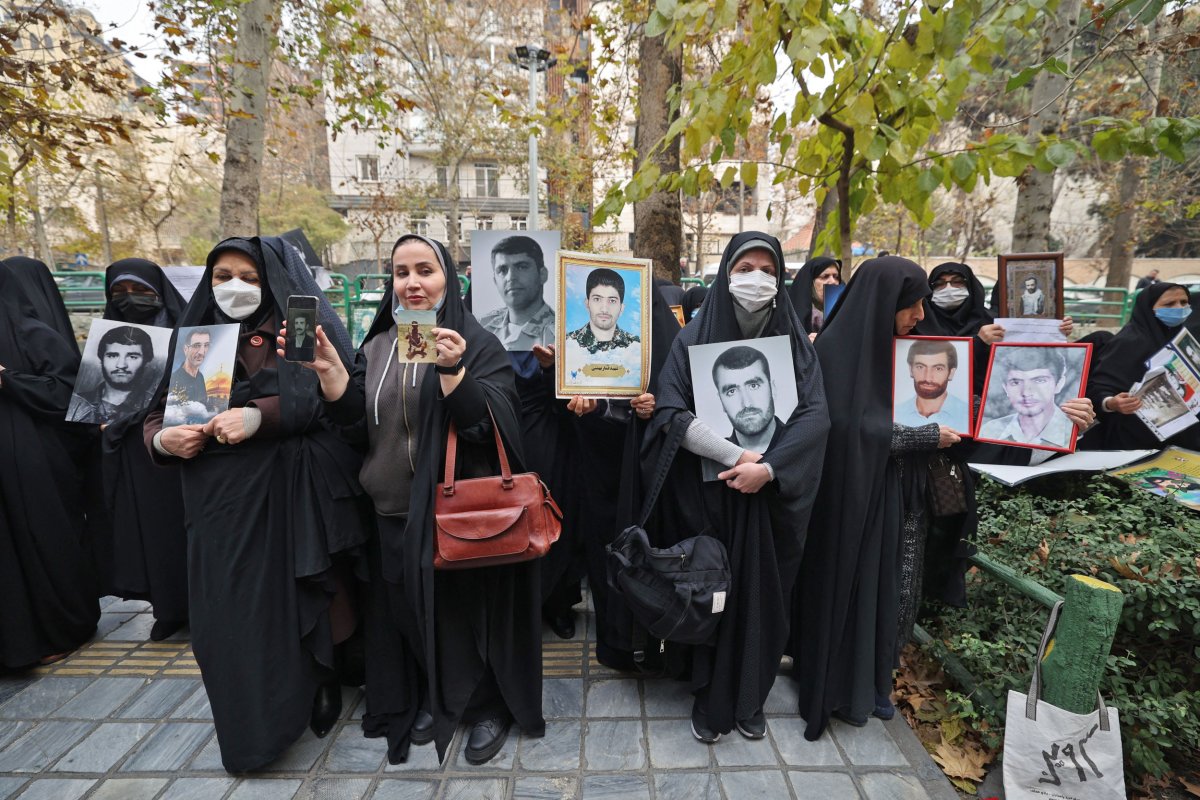In yet another vote punishing Iran over the country's brutal crackdowns, China and Russia backed the Islamic Republic again as the United Nations ousted Iran from a commission on gender equality.
On Wednesday, the 54-member U.N. Economic and Social Council adopted a U.S.-drafted resolution to remove Iran from the 2022-2026 Commission on the Status of Women effective immediately, with 29 members voting in favor and eight voting against. Sixteen nations abstained from voting.
Among the eight "no" votes were China, Russia, Bolivia, Kazakhstan, Nicaragua, Nigeria, Oman and Zimbabwe.
The resolution was sparked by Tehran's ongoing, violent response to the unprecedented levels of protests that Iran has faced in the wake of Mahsa Amini's death in September. Since the 22-year-old woman died while in the custody of Iran's "morality police," Iranian officials have arrested thousands of demonstrators and in the last week, have begun executing protesters.

Despite the escalating developments in Iran, two of the world's superpowers—China and Russia—have remained steadfast in their support for the republic.
Last month, China joined five other nations in voting against the creation of a new fact-finding mission investigating the alleged human rights violations in Iran, while Russia claimed the mission to be "illegitimate." Russia cannot currently vote in the U.N. Human Rights Council as it was suspended earlier this year for its invasion of Ukraine.
Experts previously told Newsweek that the two nations are facing growing incentives to align with Iran as each is riddled with its own problems at home. Russia is still battling, and making little ground, in the now-nine-and-a-half-month war in Ukraine, while China's economic situation has worsened and its zero-COVID policy is driving a reignited protest movement.
In response to the demonstrations in Iran, Beijing has advocated for a less punitive approach to the Islamic Republic, and Russia, which has been increasing its military dependence on Iran, has followed suit.
"As China's internal worsens due to the unrest over COVID-19 restrictions and economic slowdown, the more Beijing values external sources of validation for its legitimacy," Timothy Heath, a senior international defense researcher at the RAND Corporation, told Newsweek.
"Partnership with Iran and Russia offers a weakened Beijing political support that can help offset some of the decline in legitimacy inflicted by the government's mishandling of the COVID-19 situation," he said.
On Wednesday, Iran's U.N. Ambassador Amir Saeid Iravani called the adopted resolution illegal and described the U.S. as a bully targeting Iran in an "appalling and disgraceful" move. Russia also called for an opinion from legal experts on whether the Economic and Social Council is permitted to oust Iran.
The Commission on the Status of Women, which meets annually in March, aims to promote gender equality and empower women and girls around the world. Its members are elected to four-year terms by the Economic and Social Council.
Despite criticisms from Tehran and Moscow, U.S. National Security Adviser Jake Sullivan praised Wednesday's vote as "another sign of the growing international consensus on Iran and demands for accountability."
"The recent horrifying executions in Tehran only strengthen our resolve to expand this growing consensus and pursue all possible mechanisms of accountability against the Iranian regime and its officials responsible for these atrocities," Sullivan said in a statement.
Update 12/14/22, 2:15 p.m. ET: This article was updated with comment from Timothy Heath.
Uncommon Knowledge
Newsweek is committed to challenging conventional wisdom and finding connections in the search for common ground.
Newsweek is committed to challenging conventional wisdom and finding connections in the search for common ground.
About the writer
Katherine Fung is a Newsweek reporter based in New York City. Her focus is reporting on U.S. and world politics. ... Read more
To read how Newsweek uses AI as a newsroom tool, Click here.






